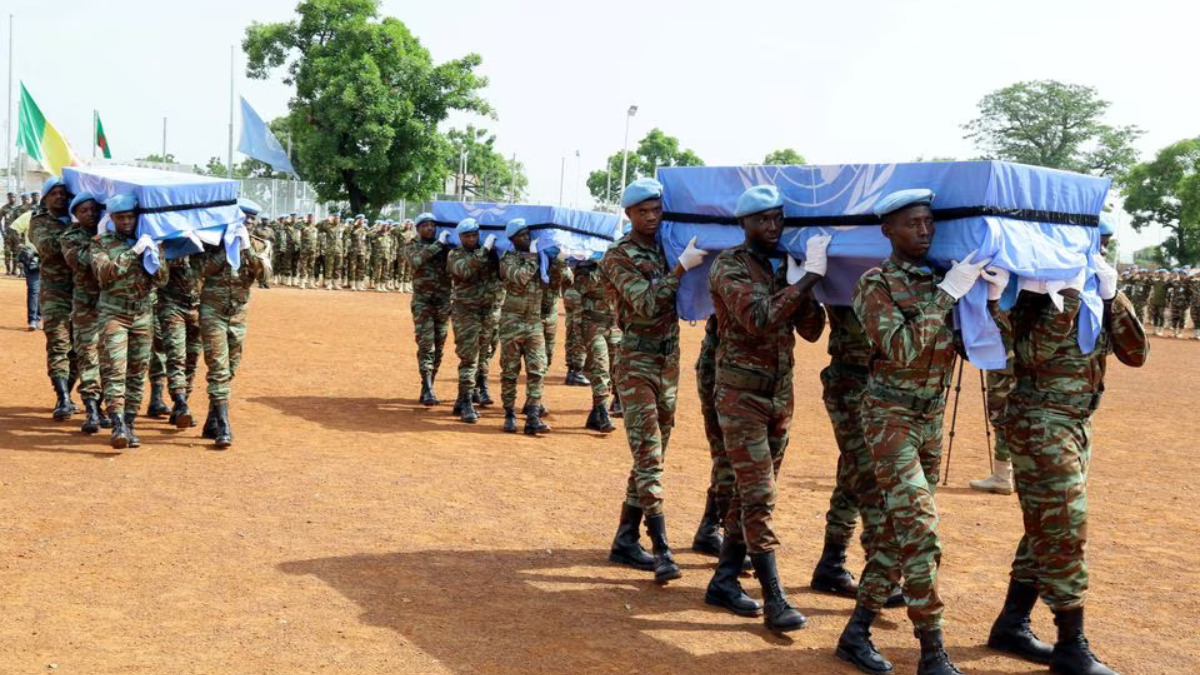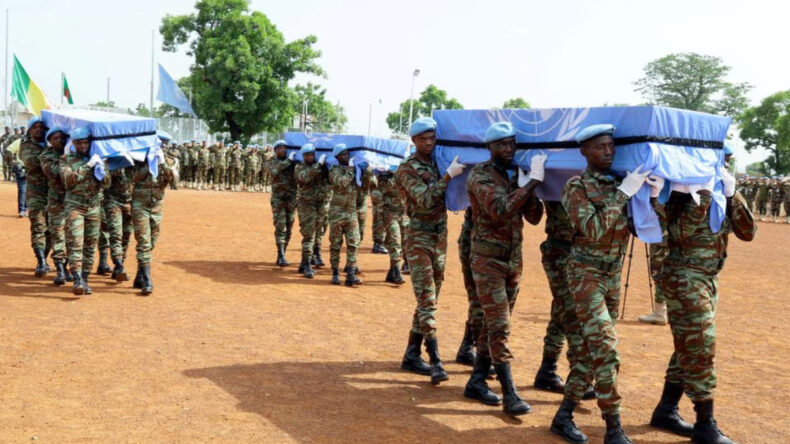On Friday, the United Nations Security Council unanimously decided to terminate a peacekeeping operation in Mali that had been ongoing for ten years. This decision came after the military junta in Mali unexpectedly requested the departure of the 13,000-strong peacekeeping force. The United States alleged that this request was orchestrated by Russia’s Wagner mercenary group.

The conclusion of the MINUSMA operation, which has faced challenges due to government restrictions, marks the culmination of years of tension. These tensions have hindered both air and ground peacekeeping activities since Mali partnered with Russia’s Wagner group in 2021. Notably, the Wagner group was recently involved in a failed armed mutiny in Russia.
The United Nations peacekeepers have been recognized for their crucial role in safeguarding civilians from an Islamist insurgency, which has resulted in the loss of numerous lives. Concerns have been raised by experts who fear that the security situation may deteriorate once the peacekeeping mission withdraws. This would leave Mali’s ill-equipped army to confront the militants who currently hold significant portions of territory in the northern and central desert regions, alongside approximately 1,000 Wagner fighters.
The resolution, drafted by France and approved by all 15 members of the council, called for the peacekeeping mission to commence the process of ending its operations on Saturday. This process includes transferring its responsibilities, ensuring an organized and secure drawdown, and withdrawing its personnel. The objective is to complete this entire process by December 31, 2024.
While the Security Council was in the process of voting, the White House accused Yevgeny Prigozhin, the leader of Wagner, of playing a role in orchestrating the exit of UN peacekeepers from Mali. Additionally, the White House stated that it possesses information suggesting that Mali’s authorities have made payments exceeding $200 million to Wagner since the latter part of 2021.
White House national security spokesman John Kirby revealed that Yevgeny Prigozhin, the leader of Wagner, played a significant role in orchestrating the departure of UN peacekeepers from Mali, with the intention of advancing Wagner’s interests. Kirby further stated that senior officials in Mali collaborated directly with Prigozhin’s employees to notify the UN secretary-general that Mali had withdrawn its consent for the MINUSMA mission.
A spokesperson from the Mali government did not provide an immediate response when asked for a comment.
According to Russia’s Deputy U.N. Ambassador Anna Evstigneeva, Mali has made a “sovereign decision” regarding the matter.
“We would like to confirm our support for Bamako in its aspiration to take full responsibility and play the leading role in stabilizing the Malian state,” she said. “Russia will continue to provide comprehensive support to Mali for normalizing the situation in that country on a bilateral basis.”
Beyong Peacekeeping, Mali to be Vigilant
Mali’s U.N. Ambassador, Issa Konfourou, informed the Security Council that the government has taken note of the resolution’s adoption and emphasized that they will closely monitor adherence to the timeline for withdrawal. The government of Mali is committed to ensuring compliance with the agreed-upon timeline.
Konfourou expressed the government’s regret that the Security Council still perceives the situation in Mali as a global threat to peace and security. However, he affirmed that Mali is willing to cooperate with all partners interested in collaborating with the country, on the condition that they uphold the guiding principles of Mali’s state policies.
The Security Council resolution grants MINUSMA the authority to respond to imminent threats of violence against civilians and support the secure delivery of humanitarian aid, specifically within its immediate vicinity. This authorization will remain in effect until September 30th.
The resolution requests U.N. Secretary-General Antonio Guterres to collaborate with the Malian authorities in developing a plan for the transfer of MINUSMA’s responsibilities. The plan is expected to be presented to the Security Council by August 15th. Furthermore, the resolution urges Mali to fully cooperate with the United Nations throughout the process of MINUSMA’s withdrawal.
On Thursday, Konfourou expressed Mali’s commitment to close cooperation with the United Nations.
During the Security Council’s request two weeks ago for MINUSMA to depart, Malian Foreign Minister Abdoulaye Diop highlighted the existence of a “crisis of confidence” between the Malian authorities and the U.N. operation.
Until December 31st, MINUSMA has been granted authorization to ensure the security of U.N. personnel, facilities, convoys, installations, and equipment, as well as associated personnel. The mission is also authorized to carry out operations to evacuate U.N. personnel and humanitarian workers facing perilous situations and provide medical evacuations as required.
Since the uprising in 2012, Mali has faced significant challenges in containing the Islamist insurgency. In response, the Security Council deployed MINUSMA in 2013 to assist in restoring stability, supporting both international and local efforts. However, escalating insecurity and frustrations surrounding this issue led to two coups in Mali in 2020 and 2021.













